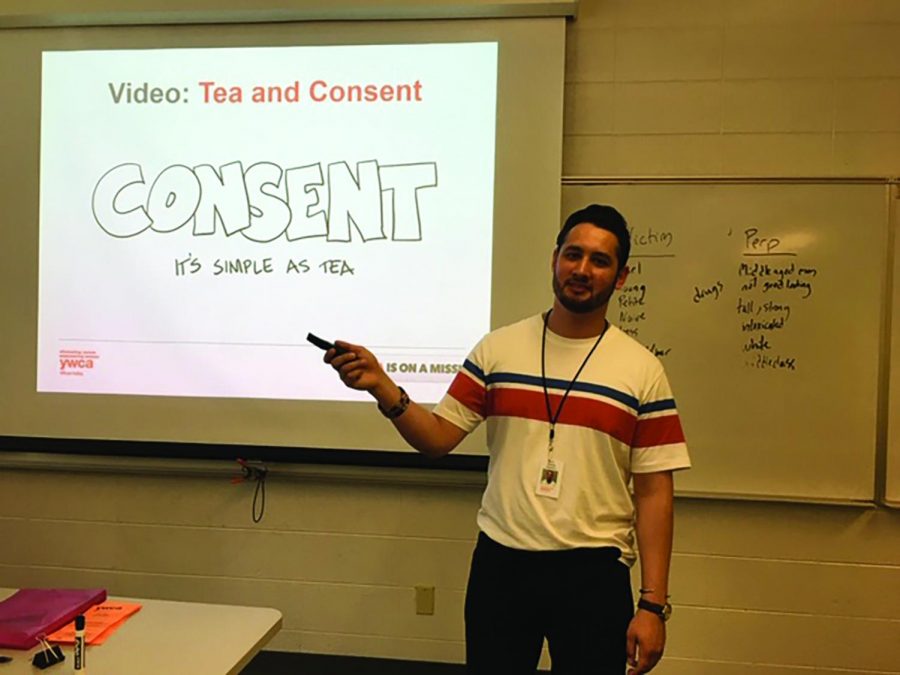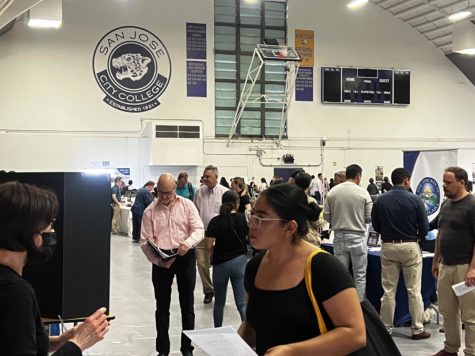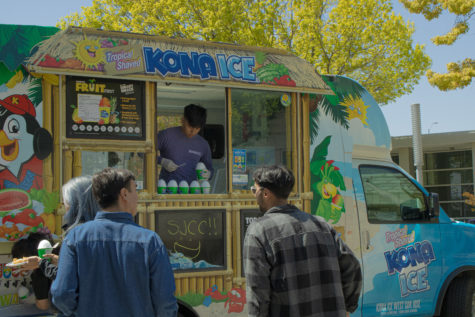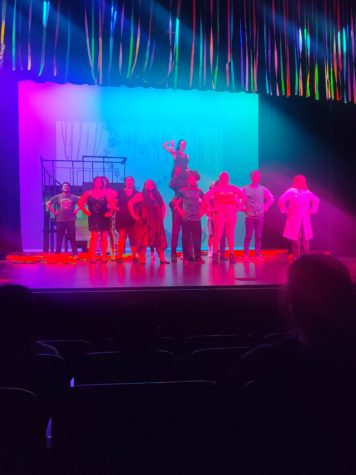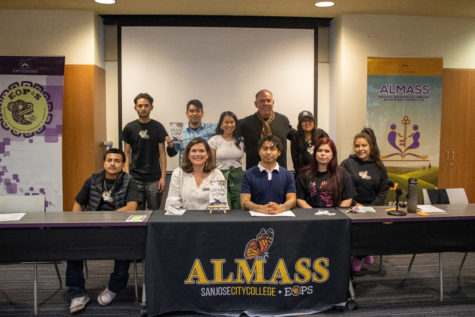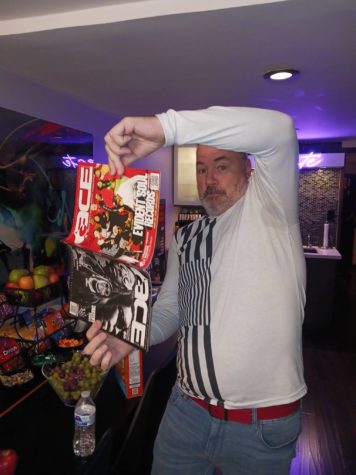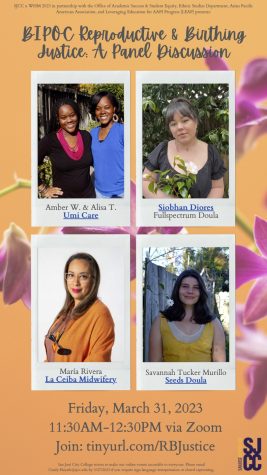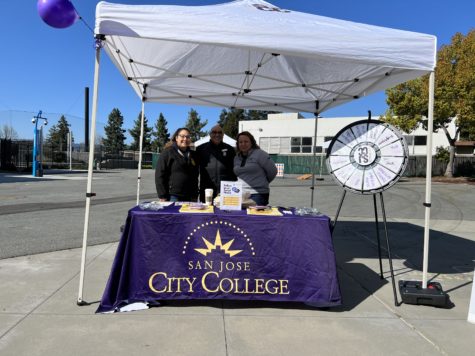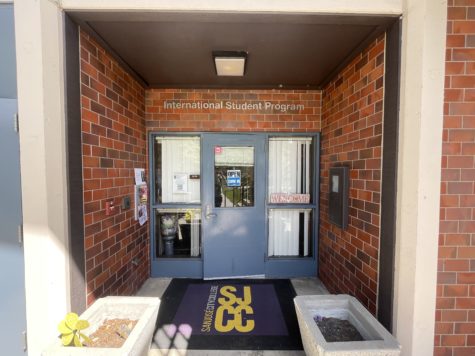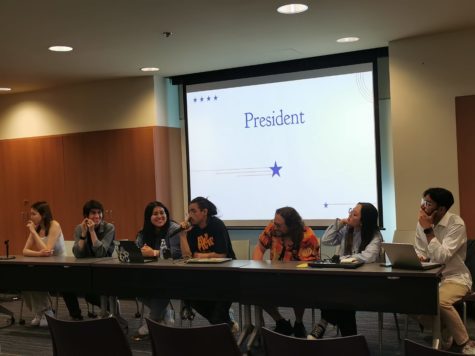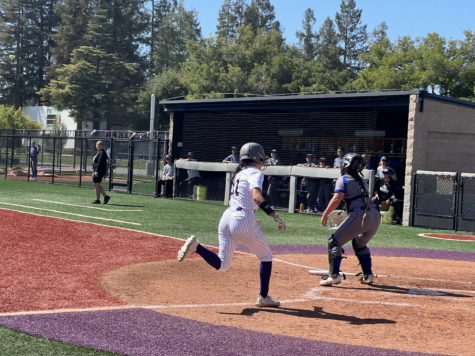Sexual assault awareness and avoidance is as easy as tea
YWCA programs provide information and help for victims of rape
April 9, 2019
- Every 98 seconds, an American is sexually assaulted.
- 90 percent of survivors are women.
- 55 percent of assaults are in or near the home.
- 85 percent perpetrators are a known entity.
- 95,000 rape victims per year
- 1070 perpetrators are convicted per year
- For more statistics, visit http://rainn.org
Andrew Anguiano, a training and communications education coordinator for the YWCA, presented a multifaceted lecture titled “Sexual Assault 101” in a Human Sexuality class at SJCC on Monday, March 18. Using PowerPoint slides, video illustrations, in-person demos and handouts, Anguiano spoke about gender-based violence in an attempt to raise awareness.
Anguiano’s lecture covered topics of supporting survivors, raising awareness and crisis counseling.
“I don’t think there’s enough conversation about sexual assault,” Anguiano said. “And not enough men are involved in the conversation.”
Fran Jackler, the psychology professor who invited Anguiano and the YMCA’s education program into her class, frequently invites guest speakers with expertise into her classroom. “The topic of consent is important for everyone,” she said. “I’ve found the Y presents sensitively and helps people feel comfortable.”
Anguiano has worked at YWCA for three years and speaks at many venues, including high schools and colleges. His relaxed presentation allowed the students to be interactive and engaged. Sensitive topics, such as reluctantly consenting to sex within marriage were raised, and Anguiano handled the tension with compassion and ease.
“Not being offended to a rejection is a problem,” Anguiano said. If someone takes a rejection personally, the offended person can view themselves as a failure, which may induce coercion or violence. Clear communication is paramount.
Myths of sexual assault are often perpetuated by Hollywood stereotypes. The victim stereotype is female, young, naïve, intoxicated and wearing revealing clothing. The perpetrator stereotype is male, middle-aged, not necessarily attractive, stronger, taller and also intoxicated.
But the facts of sexual assault differ from Hollywood and the main narrative.
YWCA of Silicon Valley’s 24/7 support line is 1-800-572-2782, or visit www.ywca-sv.org
“Assault is not a result of what a person is wearing,” Anguiano said. According to his sources, the victim can be wearing anything from pajamas to a sweat suit, and 10 percent of victims are male.
Anguiano demonstrated what coercion looks like by working with a student volunteer and a pen. Coercion was defined as whenever it is more difficult to say “no” than to say “yes.” It is not always physical, but can include threats, body language and shaming.
Coercion’s counterpoint, consent, has permission at its core. Anguiano used a video titled, “Consent: It’s simple as tea” to illustrate. Emphasis was placed on the fact that consent must be clear, coherent, willing and ongoing.
Victims of sexual assault are at an increased risk for PTSD, depression and drug abuse, among other things.
Stigmatization is a factor which impacts whether a victim reports the incident, and it can also lead to the victim internalizing blame.
To help a victim of sexual assault, the “do” list includes listening, acknowledging, validating and providing resources. Options for reporting the incident anonymously can be done with and without law enforcement, and they include Planned Parenthood.
The “do not” list when learning about an assault includes confronting the abuser, asking why the incident happened, acting shocked (the victim becomes a comforter in that case) and telling others what happened to the victim.
The YWCA is hosting a survivor panel to stand against sexual harassment April 11 at 5:30 p.m., at 375 South Third St. The event is free, open to the public, and registration is at http://tinyurl.com/ywcasvpanel.

